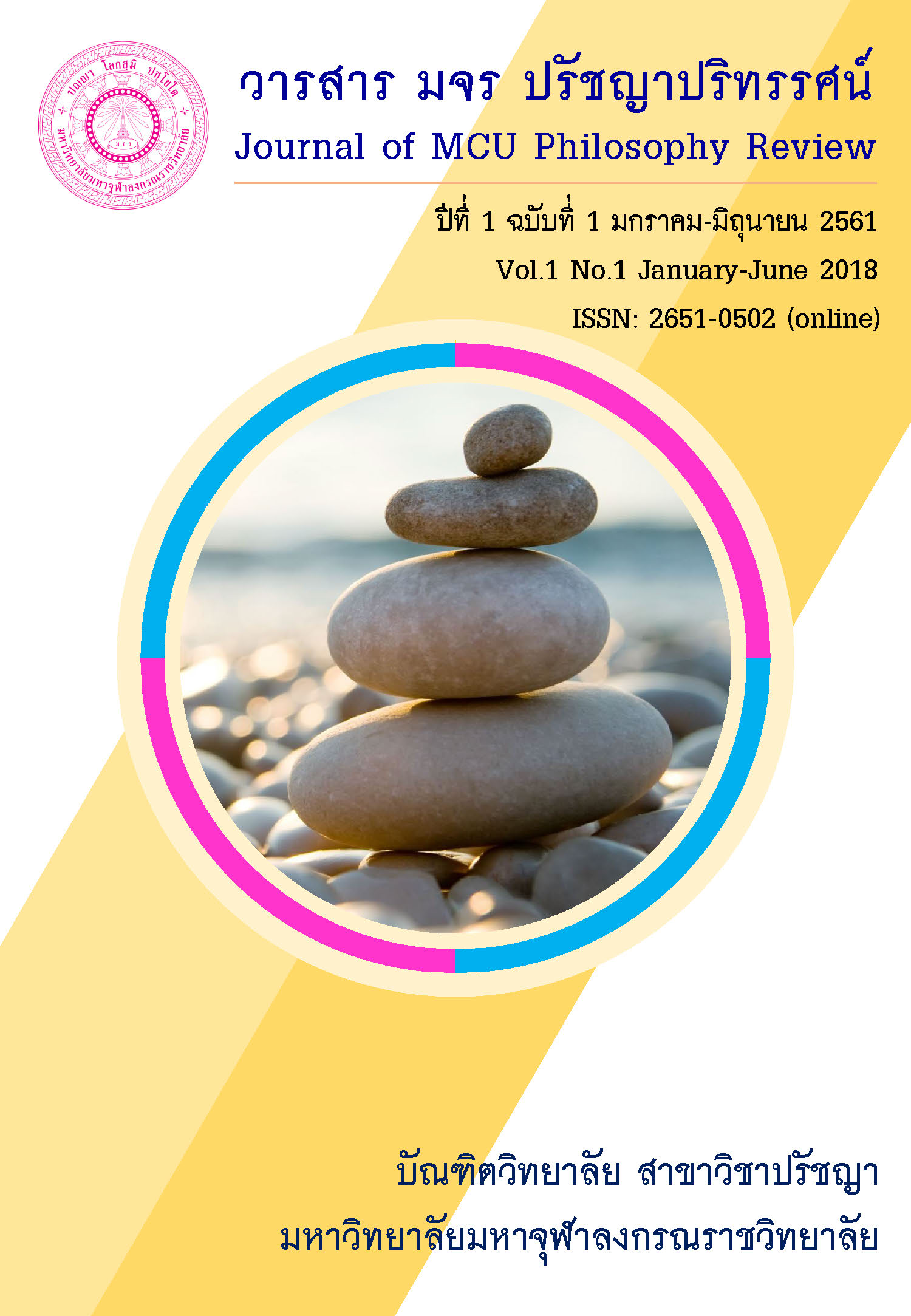Plato's Philosophy of Educational Measurement
Main Article Content
Abstract
The purpose of this article is to present Plato's philosophy of measurement. In this study, three major issues are considered based on the rationality. First of all, it discusses about the drawbacks of using numbers or scores as a basis for students' educational measurement. In this section, the author explains how the problem arises when measuring students’ educational quality based on only numbers under the implications of Plato’s philosophy of measurement indicating how the proper measurement is. Secondly, the author presents an issue of Plato's Theory of Human Nature to assure the argument that the effective educational measurement shall be consistent to human nature. The third section presents the ways to measure the education quality indicating that the use of numbers or scores in measurement should be balanced, that is both intellectual and the spiritual skills (moral and ethical aspects) should be measured.
Article Details
บทความที่ได้รับการตีพิมพ์เป็นลิขสิทธิ์ของวารสาร มจร ปรัชญาปริทรรศน์
ข้อความในบทความที่ได้รับการตีพิมพ์ในวารสาร ถือเป็นความรับผิดชอบของผู้เขียนบทความ และข้อคิดเห็นนั้นไม่ถือว่าเป็นทัศนะและความรับผิดชอบของกองบรรณาธิการวารสาร มจร ปรัชญาปริทรรศน์
References
เพลโต.(2523). The Republic (อุตมรัฐ). แปลโดย ปรีชา ช้างขวัญยืน. กรุงเทพมหานคร: จุฬาลงกรณ์มหาวิทยาลัย.
สุมน อมรวิวัฒน์. (2529). การศึกษาเพื่อความเป็นมนุษย์. กรุงเทพฯ: มหาวิทยาลัยมหิดล.
ทิศนา แขมมณี. (2548). ศาสตร์การสอน : องค์ความรู้เพื่อการจัดกระบวนการเรียนรู้ที่มีประสิทธิภาพ. กรุงเทพมหานคร: จุฬาลงกรณมหาวิทยาลัย.
แนวหน้า. (2560).“การโกงข้อสอบ: เมื่อค่านิยมสำคัญกว่าความถูกต้อง”. 1 พฤศจิกายน.


